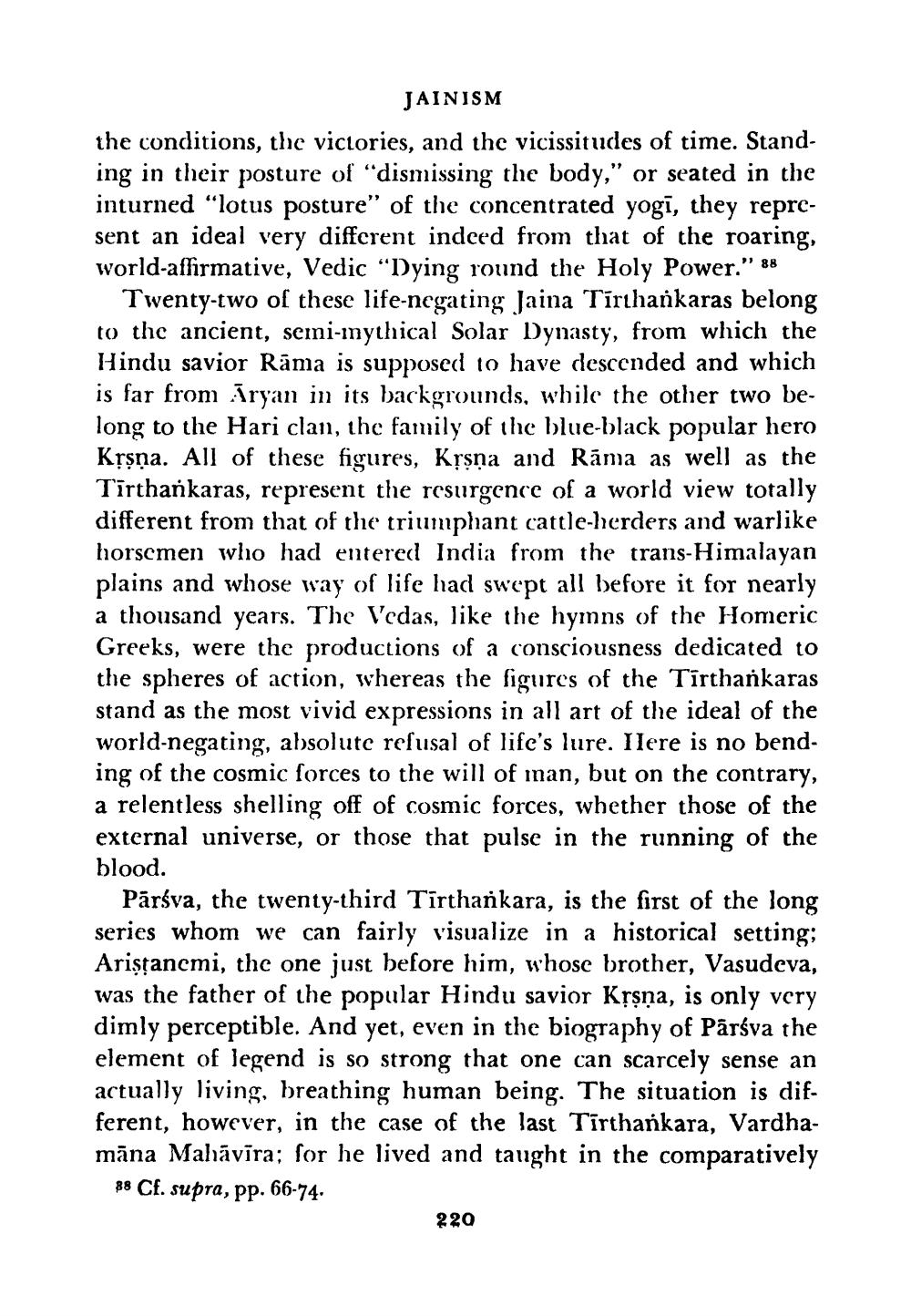________________
JAINISM the conditions, the victories, and the vicissitudes of time. Standing in their posture of "dismissing the body," or seated in the inturned "lotus posture" of the concentrated yogī, they represent an ideal very different indeed from that of the roaring, world-affirmative, Vedic "Dying round the Holy Power." 88
Twenty-two of these life-ncgating Jaina Tīruhankaras belong to the ancient, serni-mythical Solar Dynasty, from which the Hindu savior Rāma is supposed to have descended and which is far from āryan in its backgrounds, while the other two belong to the Hari clan, the family of the blue-black popular hero Krşņa. All of these figures, Kșsna and Rāma as well as the Tīrthankaras, represent the resurgence of a world view totally different from that of the triumphant cattle-herders and warlike horscmen who had entered India from the trans-Himalayan plains and whose way of life had swept all before it for nearly a thousand years. The Vedas, like the hymns of the Homeric Greeks, were the productions of a consciousness dedicated to the spheres of action, whereas the figures of the Tīrthankaras stand as the most vivid expressions in all art of the ideal of the world-negating, absolute refusal of life's lure. Ilere is no bending of the cosmic forces to the will of inan, but on the contrary, a relentless shelling off of cosmic forces, whether those of the external universe, or those that pulse in the running of the blood.
Pārsva, the twenty-third Tirthařkara, is the first of the long series whom we can fairly visualize in a historical setting; Aristancmi, the one just before him, whose brother, Vasudeva, was the father of the popular Hindu savior Krşņa, is only very dimly perceptible. And yet, even in the biography of Pārsva the element of legend is so strong that one can scarcely sense an actually living, breathing human being. The situation is different, however, in the case of the last Tirtharkara, Vardhamāna Mahāvīra; for he lived and taught in the comparatively 88 Cf. supra, pp. 66-74.
220




